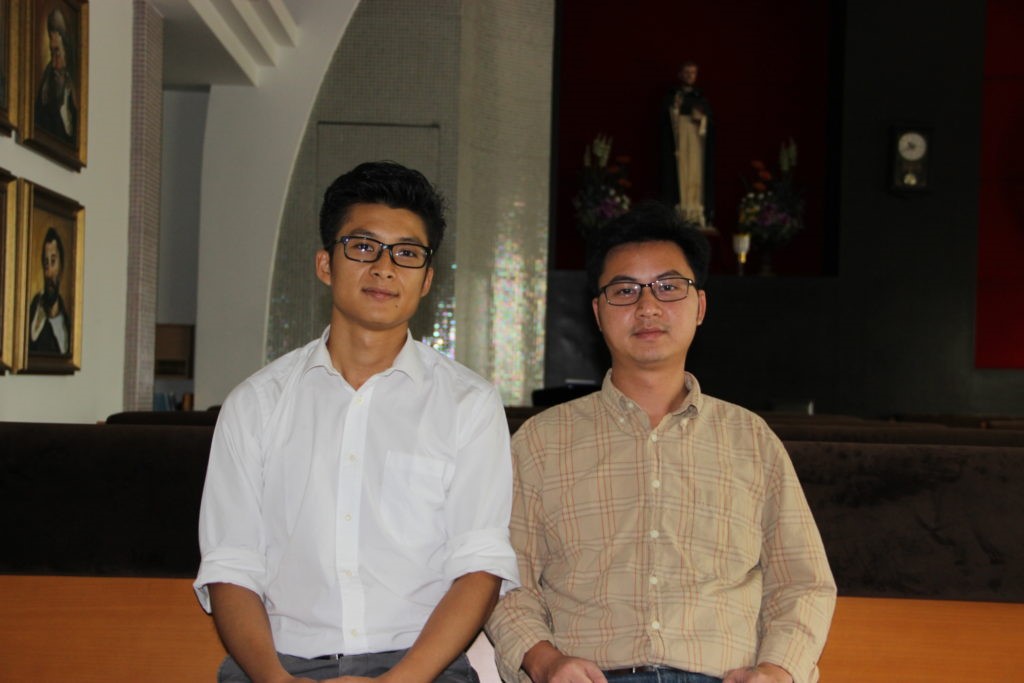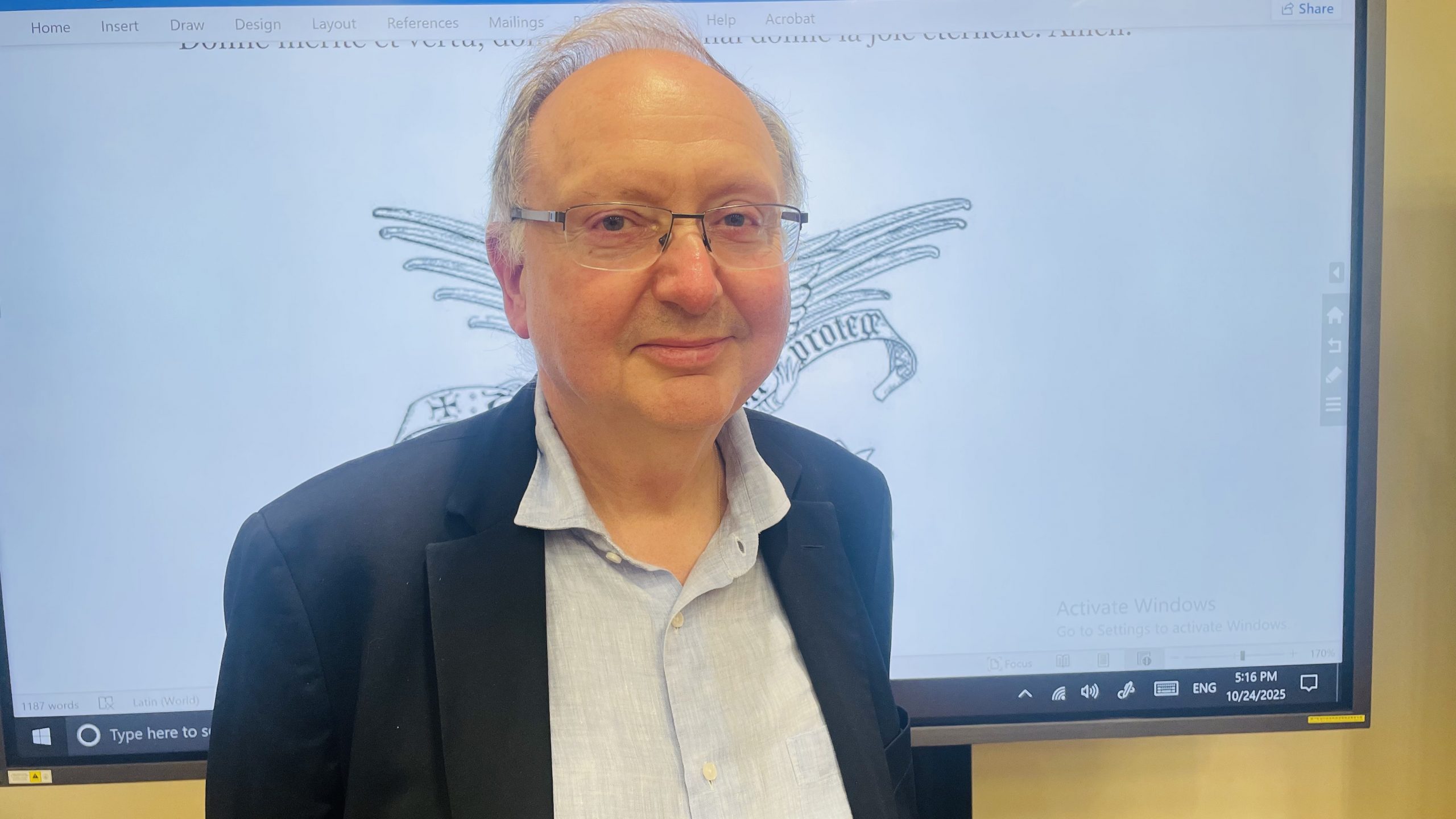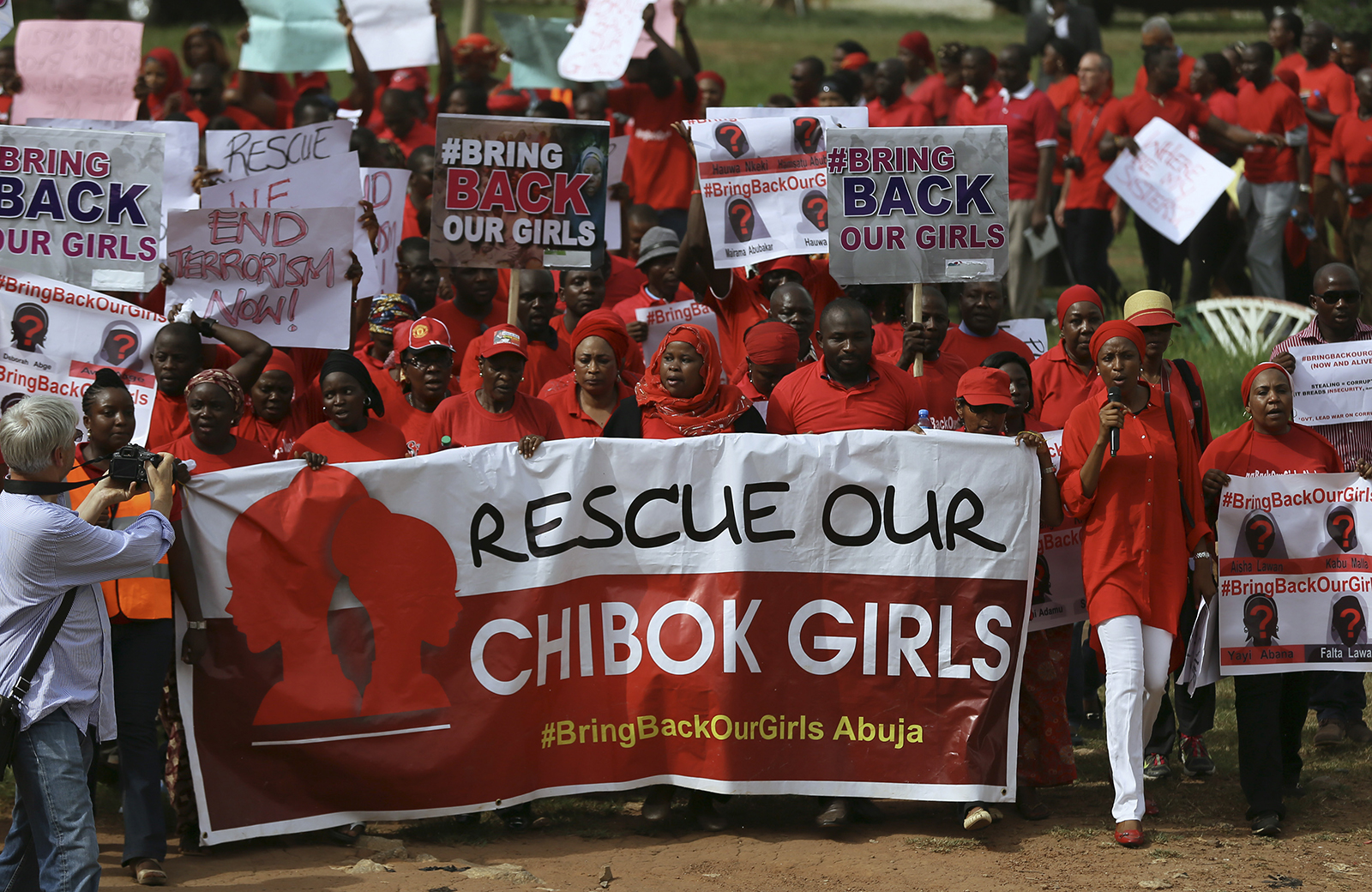– Marco Carvalho
Next stop: Priesthood
They have received diaconate in All Saints Day and are, ever since, a step closer to fulfil their aspiration: to be become priests and serve the people of God. The enthusiasm with which Ignatius Ngo Van Thu Giang and Francis Nge Nge talk about the challenges awaiting them contradict the idea that the Church faces a serious vocational crisis. In Vietnam and in Myanmar, they assure us, Catholicism has been growing in the last few years.
In the beginning of the month you have both received diaconate here in Macau. This is the first step to something bigger. What are your plans within the Catholic Church?
Ignatius: I just finished my Philosophy and Theology Course. My plan, from the very beginning, when I started my novitiate in Hong Kong, was to become a priest. I already committed myself because, as a religious congregation, we are different from other priests. Well, we are not different in terms of the rituals of being ordained, but we commit ourselves to a different way of life. We already commit ourselves at the novitiate and that is why we talk about ongoing formation; it’s a continual process. The event of November 1st is a very important event. It marks a crucial change. It is not only a change of status that allows us to serve near the Bishop and near the people, but also a theological change. It means we have become a new person. The ones we were until the beginning of the month don’t exist anymore. We have received a new personality. From that moment, we won’t plan on our behalf anymore, because God has called us. Our plans are not ours. They are God’s plans.
Did the same happen with you, Francis? By becoming Deacon, God relieved you from your own plans?
Francis: On becoming a deacon, I have taken one step further to achieve my dream. I had decided to become a priest when I was a young child. All my life I have been trying to become a priest, so on the 1st of November, when we were ordained as Deacons, I came one step closer to fulfill my dream. This is what I have been hoping for, what I have been working for all my life. It is a life-changing event: to be a Deacon is very different from being an ordinary faithful.
When did you first had the notion that the way of God was the right way for you?
Francis: To tell you the truth, the reason why I became a priest is that I always had a great admiration for the parish priest, back in my hometown. He is a good person and I admired him a lot. When I was small, I attended the Mass with great devotion. I was always very touched by his words and I decided that, one day, I wanted to become like him. I was around 10, 12 years old. The road was a long one, but I am a step closer to becoming a priest.
Did the same thing happen to you, Ignatius? Did you had a role model when you were young or someone that inspired you to become a priest?
Ignatius: I do believe that the call of God is different from person to person and can be seen from different views. If we have in mind the Old Testament, we understand that the prophets felt the call of God in different ways. Some of them were young and they were not really ready to understand the call of God, but God told them: “Follow me and I will make a different man out of you.” In my personal case, my story is quite different from Francis’ experience. I only decided that I wanted to become a priest after I finished University. When I was young, I had others plans for my life. The will of God imposed itself and who am I to intervene on this? If it is the plan of God, it is certainly the best for each of us. It doesn’t matter if it is or not in my interest. It’s for my good and the good of the people of God.
Were you raised a Catholic?
Ignatius: My family members are very good Catholics. My parents and my brothers, all of them are practicing Catholics. I don’t have sisters. I really admire the way that my family raised and treated me, because they gave me the opportunity to experience the Christian values in a very active way. I had, nevertheless, a normal childhood. When I was at the University I had the chance to explore the way that the priests lived and I felt interested in something more for the very first time. My father was the one who suggested that I should become a priest: “It is better to become a priest than to get married. You have a lot of brothers and most of them are married. Nevertheless, you should be the one to decide about your life.” After that I remember thinking: “It would be kind of nice if I could become a priest. Why shouldn’t I try it?”
Your family agreed with the idea of you becoming a priest? It was not a surprise for them?
Ignatius: They loved it. Those Catholic families that are more traditional love the idea of having a priest in their family. They feel proud about it. I believe that they prayed and did whatever they could to support me …
Did the same happen with you, Francis?
Francis: I made my desire to become a priest known to my family ever since I was small. I am very thankful for the fact that all my family members accepted my choices and supported me from the very first day. I received their support during my whole life and they are still with me on my decision. They are very, very supportive and I love my family. The only sad thing is that one week before my ordination, my father passed away. My father did not witness the moment in which I became a Deacon and got a step closer to become a priest.
There’s the idea of unity within the Church, but there are different organizations, like this Priory. Why did you choose Saint Dominic Priory?
Ignatius: In my opinion, when you are called by God you can live anyway and anywhere. You can live in a Priory, like this, or in any other place because, wherever you live, you will always feel happy. If God wants you, the place is not important. If you didn’t receive his call and you feel you are not happy, then the place doesn’t matter either because if you are not happy here, you won’t be happy any other way or any other place.
Francis: As you know, I come from Myanmar. Before joining the Dominicans, I didn’t know much about them. In Myanmar there are no Dominicans. The Catholic Church in Myanmar is mostly in the hands of the dioceses. It is run by Bishops and priests. There are also some small communities of Salesians and of other less known orders, but they are not very popular and they don’t have many members. Most of my life, I have seen how the diocesan priests live and it was with them that I used to communicate. When I decided to enter the seminary, I expressed my feelings to my parish priest, but I wanted to experience a new way of life when I decided that I wanted to become a priest. I was told to observe the way of the Dominicans. At the beginning, my purpose was only to come and see. Little by little, I came to know that the Dominican way of life is very different from the ones that the diocesan priests lead. Here, in the Dominican Priory, we live as a community, we support each other. Communitarian life is one of the aspects of the Dominican Order that I like the most.
Why did you pick Macau? Macau is one of the oldest dioceses in Asia. Is Macau a good place to become a priest?
Ignatius: I think I am lucky to study in Macau. Most of the missionaries that evangelized Asia studied in Macau in the past and now, in the 21st century, I am one of them. The biggest difference from the past is the fact that Macau now is considered a casino city, a place fueled by money. Nevertheless, I do take what Jesus said – “You are in the world, but you do not belong to the world” – very literally. In its essential features, our society is not that different from the society in the time of Jesus. The political circumstances and the appeal of money were quite the same, but I consider that we are living in the world, but we do not belong in the world.
Francis: Macau is as very advanced city with a very big history. As you mentioned, Macau is one of the oldest Catholic dioceses in Asia. We came to Macau to study to become a priest, but we live in a very different time. As you know, in Macau, we don’t have many Catholics anymore. This is what led us to realize that in Macau there are a lot of things that we have to do related to the Church. We need to do more to make people realize the existence of the Church and we have to work harder to improve the action of the Kingdom of God in Macau.
Is this the biggest fight that the Church faces nowadays? We see that in more developed societies, like Macau and most of the European countries, there’s a certain lack of vocation …
Francis: It is true that in many of the developed societies we don’t see many vocations any more. The main reason is because people nowadays think mostly about making their life more comfortable and comfort, in our days, is mostly about money. This is also a problem in terms of education. When I was a child, my parents didn’t talk much about money and that gave us a lot more choices: me and my brothers, we were told that we could be whatever we wanted if we tried hard. Nowadays, most parents limit their children to what they want them to be in the future. They force their children to study harder, so that they can get a better job and earn more money when they grow up. Parents do not want their children to live in challenging conditions and they are responsible for this decrease on the number of vocations. Parents are our first teachers. In my opinion, vocations depend very much on the way the parents teach their children.
Ignatius, this lack of vocations … Is it something that the Church has to worry about?
Ignatius: The lack of vocations is a very sad reality for the Church, because there was a very important Catholic tradition in Europe for many century. It is still the place where the old church has its roots, but now it seems that the very future of the Church has shifted to Asia and to Africa, first of all because of the natural effect of the birth rates: the Europeans do not have the same amount of children they used to have anymore. The second aspect is the appeal of a more comfortable life: we tend to look for a more comfortable life than the one that we had. I think that the third reason is a very particular one: people don’t want to be alone. If you become a priest you will know for sure that you will be alone and most of the people are afraid of remaining alone.
Both of you were born in countries with a very turbulent recent story …
Ignatius: Vietnam is, as you know, a Communist country, but the Catholic Church is growing. We have freedom to express our faith and I am kind of a good example of that. Nowadays, in Vietnam, the vocations are growing. There are quite many children following the path of God, because there is still that sense of pride that pervades the traditional Catholic families, as I was saying. These families are proud to have a priest in their midst. The way the Church is organized in Vietnam is also quite good: there is union among the bishops, the priests and the brothers. The Church in Vietnam is very faithful to the Vatican. Therefore, I believe the perspectives are good in Vietnam. The Church will grow.
What about in Myanmar?
Francis: In my country, after the independence from Britain, we had a democratic government and then a military government. During this period, we were very confined. We were cut off from the world for more than 60 years and this was the country where I grew up. Only just recently, when the first democratic government was elected, we saw the government opening up the country. This was an opportunity not only in religious terms, but also in economic terms. Our country is making a lot of progress. Last year, Pope Francis visited Myanmar, in the first ever visit of a Pope to Burma. This is a good sign for us, for the Catholic Church and for the Catholics in our country. The Government is starting to recognize the presence and the contribution of the Catholic Church in our country. The majority of the population of Myanmar is Buddhist and, officially, Myanmar is a Buddhist country. To be a minority, as we have been during all this years, was not easy; we had a lot of difficulties to deal with the majority of the people. We had to be careful and tolerant. Nevertheless, in the last few years, Burma made a lot of progress. In the future I believe that the Catholic Church in our country will grow even further.


 Follow
Follow


